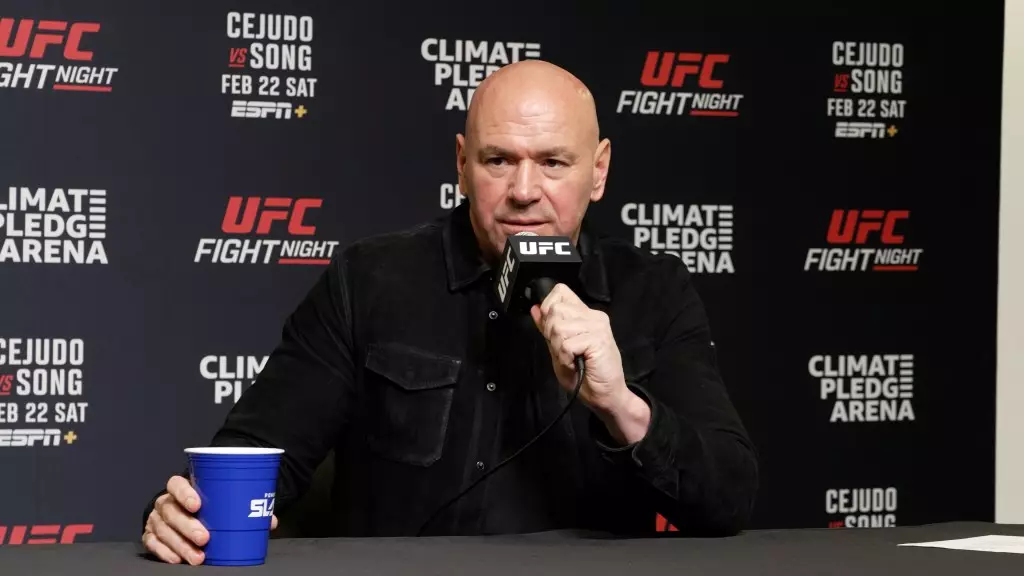In the world of mixed martial arts, the concept of dual champions – fighters holding belts in two different weight classes simultaneously – has ignited both fan excitement and managerial concern. After Ilia Topuria announced his intention to vacate the UFC featherweight championship, CEO Dana White addressed this topic, making it clear that the promotion’s stance does not entirely oppose the pursuit of multiple titles. Instead, White emphasized the responsibility attached to such ambitions, indicating that fighters should not only be prepared to defend their titles, but also to engage in regular competition across divisions.
White’s statements echo a recognition of the challenges involved in maintaining multiple championship responsibilities. He noted, “Unless you think you can defend your title,” underlining the fact that aspiring double champions must demonstrate readiness to actively participate in high-stakes matchups. This statement serves as a reminder that the journey towards dual championship status is fraught with pressure and expectation.
The Implications of Title Defense
Fighters who aspire to hold multiple titles must possess a unique blend of skill, conditioning, and strategy. Dana White pointed out the distinction between fighters who have “wiped out a division” like Jon Jones—who dominated the light heavyweight scene before moving to heavyweight—and those who are relatively new to the multiple-title equation. This distinction is crucial; it highlights that while the UFC is open to champions vying for belts across divisions, they expect a level of achievement that justifies the additional demands.
Moreover, White provided insights into fighters such as Weili Zhang, who has proven her capabilities within her division. The UFC’s willingness to allow fighters like Zhang to chase further accomplishments demonstrates a balanced approach to the notion of dual titles. There is an acknowledgment that fighters can pursue what they desire, provided they are informed about the inherent commitments required to maintain such status.
Historical Context and Future Prospects
Historically, only a select few fighters have navigated the delicate waters of dual championships successfully, including renowned names like Henry Cejudo, Daniel Cormier, Conor McGregor, and Amanda Nunes. These athletes have not only achieved significant victories but have also shown relentless dedication to their craft. The UFC’s historical context adds gravitas to the discussion, suggesting that while dual championship is possible, it requires extraordinary persistence and capability.
Topuria’s recent decision to vacate his title to avert stagnation in the division raises pertinent questions about the life and times of champions in the UFC. His case underscores the dedication required from champions, and, while vacating a title may appear as a setback, it is often a strategic move to benefit the sport and the divisions involved.
Dana White concluded that the UFC’s approach to double champions remains contingent upon individual circumstances. This implies an evolving narrative within the organization—one that prioritizes both the fighters’ wellbeing and the integrity of competition. As the world of MMA continues to expand, it is clear that the relationship between title accolades and fighter expectations will remain a focal point of discussion, ensuring that athletes are not just champions in name but in action as well.

